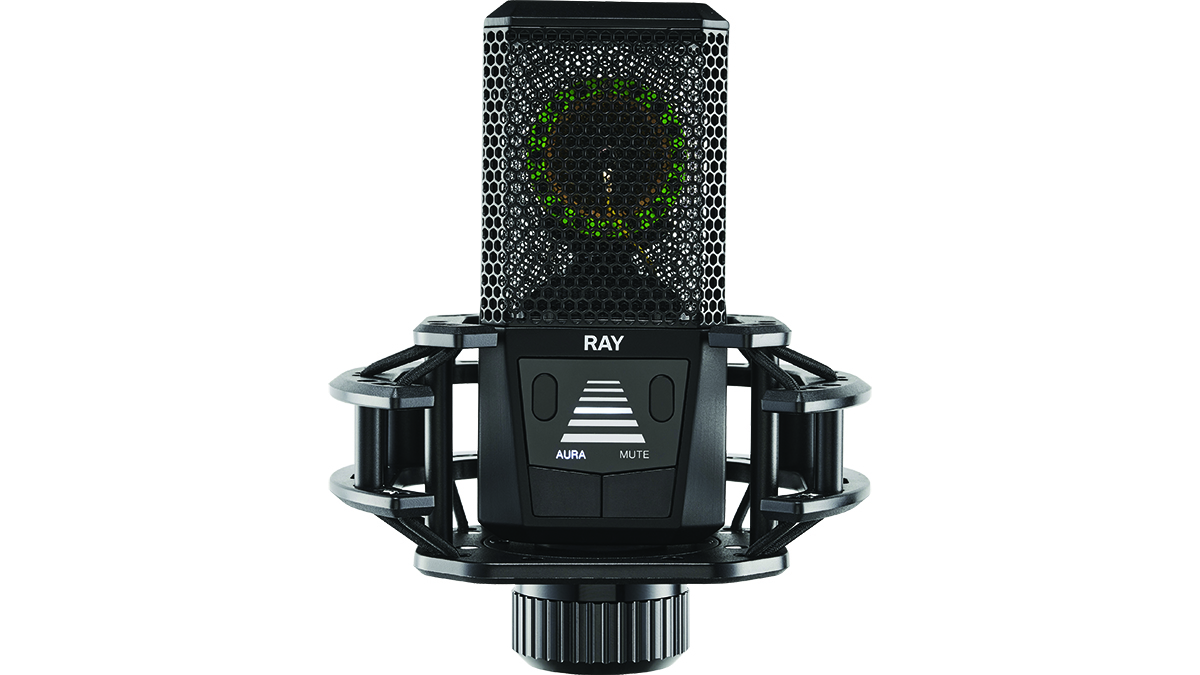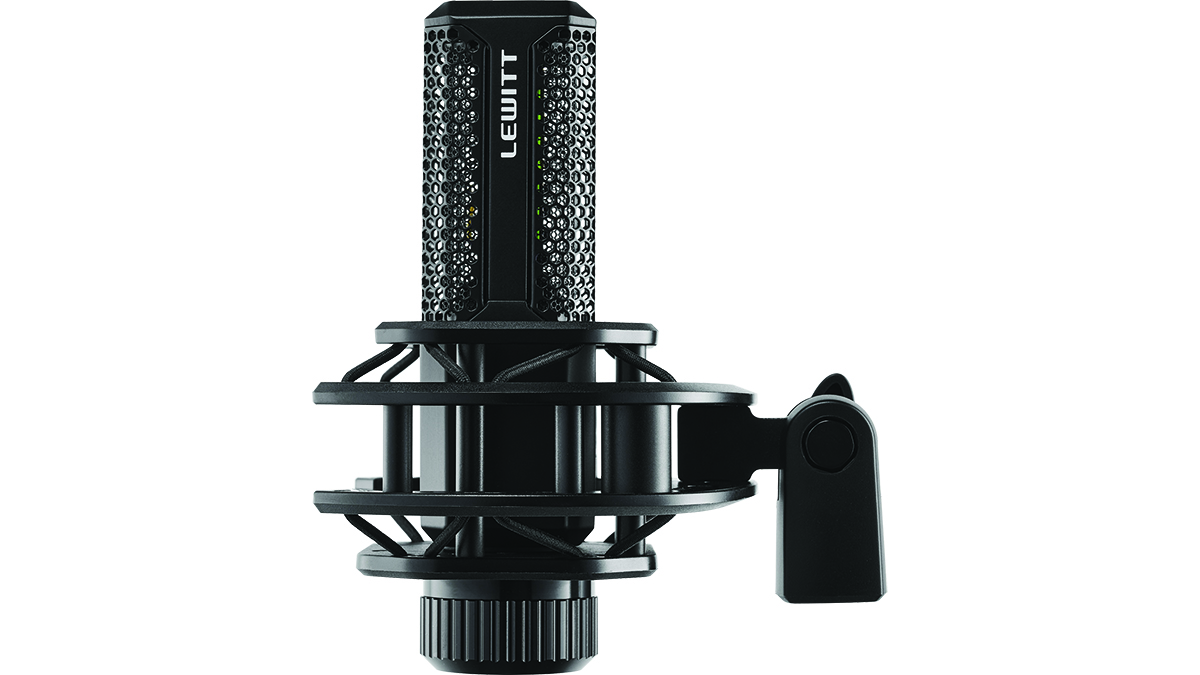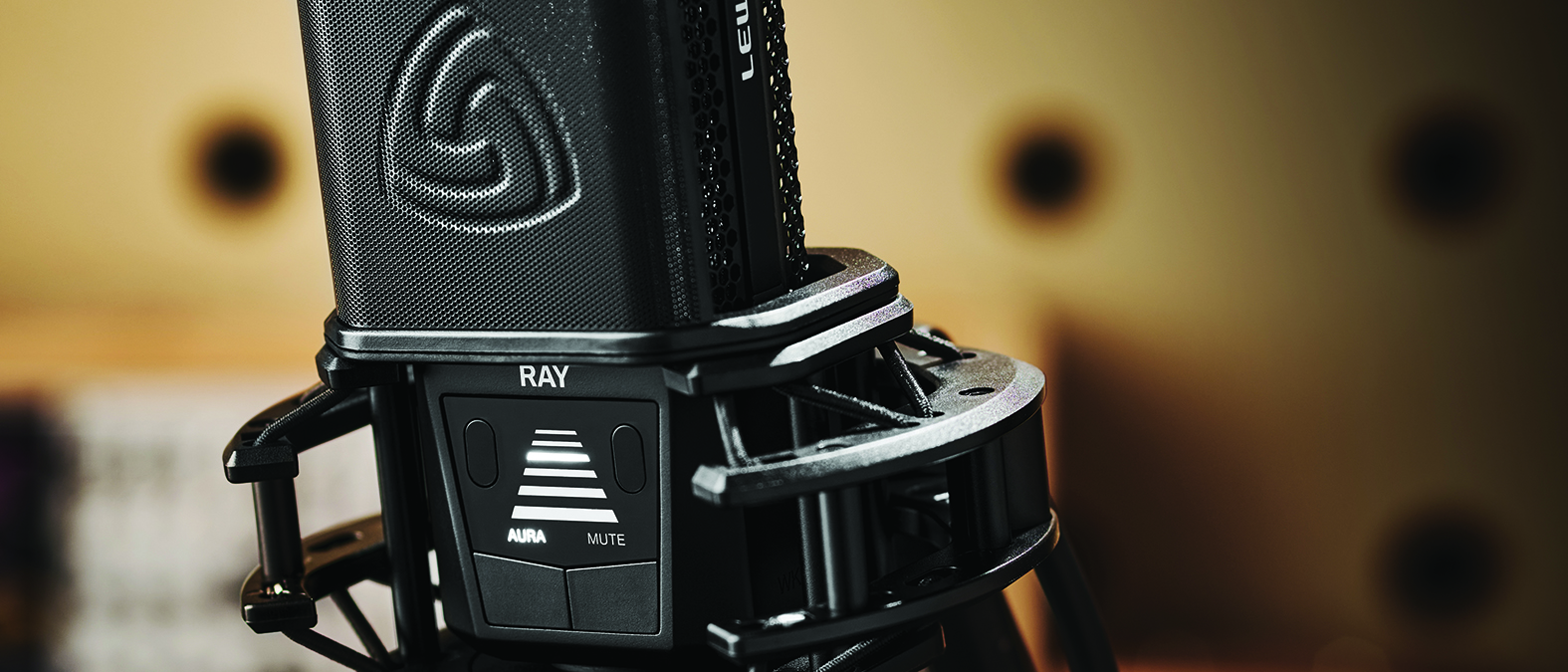MusicRadar Verdict
The Lewitt Ray introduces Aura range detection and makes us wonder how we lived without it. A superb option for podcasters, streamers and musicians.
Pros
- +
Range detection works like a charm. Recordings are balanced and consistent throughout.
- +
It’s a chunky, well-made microphone that can handle life in a busy studio environment.
- +
Ray’s short, stubby form factor lends itself well to being used on camera, where other larger mics might obscure the subject.
Cons
- -
Aura works best when you’re sensible with it – move too close, or too far away, and there can be colouration to your recordings.
MusicRadar's got your back
Lewitt Ray: What is it?
If you’re familiar with microphones, either through recording, performing or streaming, then you’ll likely also be familiar with the proximity effect. This (usually) undesirable phenomenon shows itself when you move too close to a microphone and are rewarded with boomy, bass-heavy recordings. Up to now, it’s just been another thing producers and sound engineers have to contend with when they’re recording microphones. But Lewitt, the Austrian mic brand, is nothing if not innovative in this space.
The Lewitt Ray looks on first glance like yet another large capsule condenser aimed at podcasters. It’s slightly shorter and stubbier than similar mics of its ilk, but has a pleasing weight to it. However, with the new Aura technology front and centre of the Ray’s spec sheet, we have something quite unique that should excite podcasters, streamers and musicians.

Lewitt Ray: Performance and verdict
The Aura functionality – currently going through the patent process – is very impressive indeed. It uses a ‘time of flight’ sensor to identify where you are in relation to the microphone. By taking this measurement, the mic instantly adjusts the tone or level of what it’s capturing, giving you balanced recordings without big peaks or dips in your sound’s volume or timbre. Active between 5cm and 100cm of the mic’s front, it gives plenty of room for the subject to move around without it affecting the final sound too much. Lewitt calls it autofocus for your voice, which we think is a good way of visualising the effect.
Naturally, the room in which you’re recording will still have an impact on the outcome – the sound a mic captures from 5cm will be different to 100cm away, on account of a space’s size and the resulting reverb. So taken to extremes, you might find the sound has a strange colouration to it. Within sensible limits, however, Aura does a great job of delivering balanced, dynamic sounds at superb quality levels.

Another neat feature the Aura tech allows the Ray to do is mute by distance. You decide a predetermined threshold using buttons on the front of the mic, and then the mic will automatically mute you if you move beyond that. It’s a simple trick but useful nonetheless. There’s also a dedicated mute button – not something you often find on an XLR microphone.
Despite all this digital trickery, the actual signal path is 100% analogue. Connectivity is handled by XLR, which requires 48v phantom power from your mixer or audio interface, and we liked how the package includes a chunky shock mount, magnetic pop filter and foam wind shield.
So who is the Lewitt Ray for? We think the Aura features in particular, especially mute by distance, lend themselves neatly to the world of podcasters and streamers, where the goal is surely to forget there’s a microphone in front of you in the first place.
Want all the hottest music and gear news, reviews, deals, features and more, direct to your inbox? Sign up here.
For musicians, there is plenty to be excited by too. Recording acoustic guitars, for example, can be made simpler on account of the fact that the player doesn’t need to remain rigidly still when capturing a take. By handling those minute variations in proximity automatically, the Lewitt Ray allows users to focus on what they’re saying, or doing, rather than how it’s being captured.
MusicRadar verdict: The Lewitt Ray introduces Aura range detection and makes us wonder how we lived without it. A superb option for podcasters, streamers and musicians.
Lewitt Ray: The web says
"Ray is an easy recommendation for anyone recording vocals, be it singing, spoken word, podcast or voiceover."
MusicTech
Lewitt Ray: Hands-on demos
LEWITT
Tom Buck
Bolo Da Producer
New Layer
Lewitt Ray: Specifications
- KEY FEATURES: Aura range detection, Mute by distance, Large diaphragm condenser, XLR connectivity, comes with shock mount, pop filter and wind shield.
- CONTACT: Lewitt
Chris Corfield is a journalist with over 12 years of experience writing for some of the music world's biggest brands including Orange Amplification, MusicRadar, Guitar World, Total Guitar and Dawsons Music. Chris loves getting nerdy about everything from guitar and bass gear, to synths, microphones, DJ gear and music production hardware.





